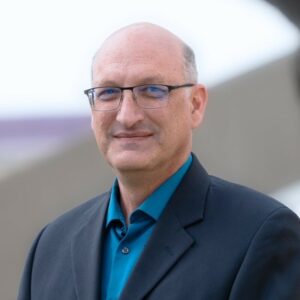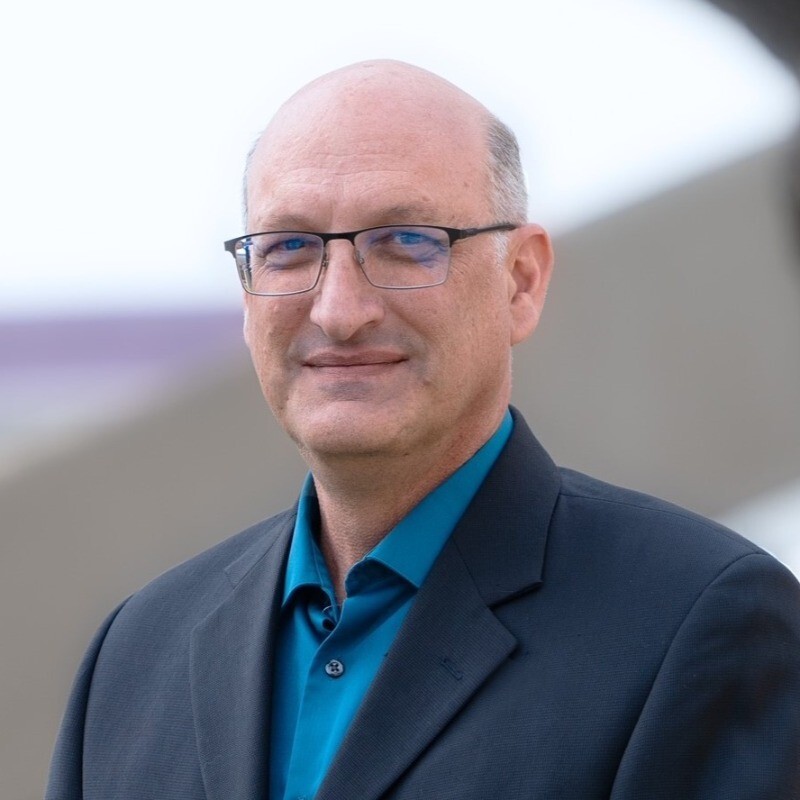
Roy Barnes is the group president of The Partner Companies (TPC), a specialty manufacturer, overseeing TPC’s photochemical etching companies: Elcon, E-Fab, Fotofab, Microphoto and PEI.
Roy is an experienced leader known for building strong teams, driving change and inspiring people to succeed. Throughout his career, he has cultivated a leadership style grounded in open communication and collaboration—ensuring teams understand one another’s strengths and work together to achieve lasting results. Roy’s focus on connection and development has consistently helped TPC grow stronger and perform at its best.
Tell us about your company?
The Partner Companies began in 2010 with a straightforward idea: bring together specialty manufacturers who excel at solving precision manufacturing problems. Over the past fifteen years, we’ve built an integrated group of eleven companies that share something fundamental — each delivers mission-critical solutions to industries where failure isn’t an option.
What ties these companies together is deep expertise in specialized processes that can complement each other to best serve our partners’ manufacturing needs. The five companies I oversee, Elcon, E-Fab, Fotofab, Microphoto and PEI, have mastered photochemical etching for ultra-precise thin metal parts, ceramic metallization and more.
The semiconductor industry has been core to our business from the beginning. Elcon Precision, which dates back to 1967, was delivering high-precision photochemical etching solutions to semiconductor manufacturers more than forty years ago. E-Fab has been doing the same since 1982. That foundation has allowed us to grow alongside the industry as it’s evolved.
Today, TPC’s 11 specialty manufacturers operate across facilities in the United States, Asia, the United Kingdom, and Mexico. Companies like Elcon, E-Fab, Fotofab, Lattice Materials, Optiforms, and PEI each bring distinct technical capabilities, whether that’s crystal growth for precision optics, high-volume production of complex metal parts, sheet metal fabrication and assembly, or plastic injection molding.
What problems are you solving?
The semiconductor sector is undergoing rapid transformation, fueled by record-breaking sales and breakthroughs in AI, 5G, and autonomous technologies that are redefining how chips power modern life. To adapt to new technological developments, we use photochemical etching — precise manufacturing process that uses light-sensitive coatings and chemical etchants to remove metal and create detailed components – to make design changes and be intimate with the design change process. Once designs are validated, we are able to rapidly scale production volumes.
This type of collaborative problem-solving is representative of how TPC helps customers overcome complex engineering challenges, bringing both process expertise and measurable results.
For example, a leading semiconductor equipment manufacturer recently shared they faced intermittent reliability failures in an aluminum nitride (AlN) heater assembly and turned to Elcon, a TPC company, for support. Elcon conducted a comprehensive failure analysis of the AlN braze stack, including the substrate, metallization, and nickel layers. Cross-sectional and adhesion testing revealed that insufficient metallization adhesion — caused by low surface roughness — was the root issue.
Elcon then conducted a design of experiments (DOE) to define the optimal AlN surface roughness range, confirming a direct correlation between roughness and metallization integrity consistent with published adhesion mechanisms. Based on these findings, Elcon provided quantitative updates to the surface finish specification, resulting in a substantial improvement in adhesion reliability and overall heater performance. While niche, these are the kind of engineering challenges — and solutions — that help enable the next gen equipment to make next gen chips.
What application areas are your strongest?
Our primary focus is partnering with semiconductor equipment manufacturers, with special emphasis on innovative and scalable domestic solutions. By working closely with these companies, we help address challenges related to equipment design and production, enhancing their competitiveness and supply chain security.
What keeps your customers up at night?
Many of our customers face intense supply chain pressures, tariff impacts, rising costs from Asia and intellectual property concerns to ensure our designs avoid being replicated or stolen. TPC’s domestic manufacturing capabilities, engineering support and dedication to secure, IP-focused partnerships help mitigate these risks, offering our customers peace of mind.
What does the competitive landscape look like and how do you differentiate?
TPC stands apart in the rapidly evolving semiconductor industry through our integrated manufacturing approach, offering more than just photochemical capabilities. As demand for faster and reliable chips grows, our ability to leverage adjacent technologies enables us to provide customers with complete designs and vertical integrations. While most of our competitors are small, family-owned businesses, TPC’s frequent investments allow us to expand our engineering and scaling capabilities. Our diverse range of materials used – from copper, stainless steel to titanium and niobium — results in new manufacturing solutions such as titanium etching.
What new features/technology are you working on?
In the heart of Silicon Valley, where we have multiple facilities, we have implemented advanced process control techniques for semiconductor processes including statistical process control (SPC) charts, to bring greater consistency and quality to photochemical etching.
This brings semiconductor-grade precision to a traditionally less-regulated manufacturing environment, improving repeatability and yields for our customers. We also continually invest in new personnel and technologies to further enhance our offerings in specialty manufacturing, photochemical etching and assembly
How do customers normally engage with your company?
We value collaborative partnerships, helping customers develop their designs and solutions with the support of our engineering team. Our customers often come in with a print and our role is to guide them through the manufacturing process. The photochemical etching process in the semiconductor manufacturing is complex and precision-driven especially as U.S. companies work to domestic supply chains. TPC’s experts are here to help customers navigate it with speed, accuracy and reliability.
For more information and to get in touch with TPC, visit https://www.thepartnercos.com/.
Also Read:
CEO Interview with Wilfred Gomes of Mueon Corporation
CEO Interview with Rodrigo Jaramillo of Circuify Semiconductors
CEO Interview with Sanjive Agarwala of EuQlid Inc.
Share this post via:







CEO Interview with Aftkhar Aslam of yieldWerx